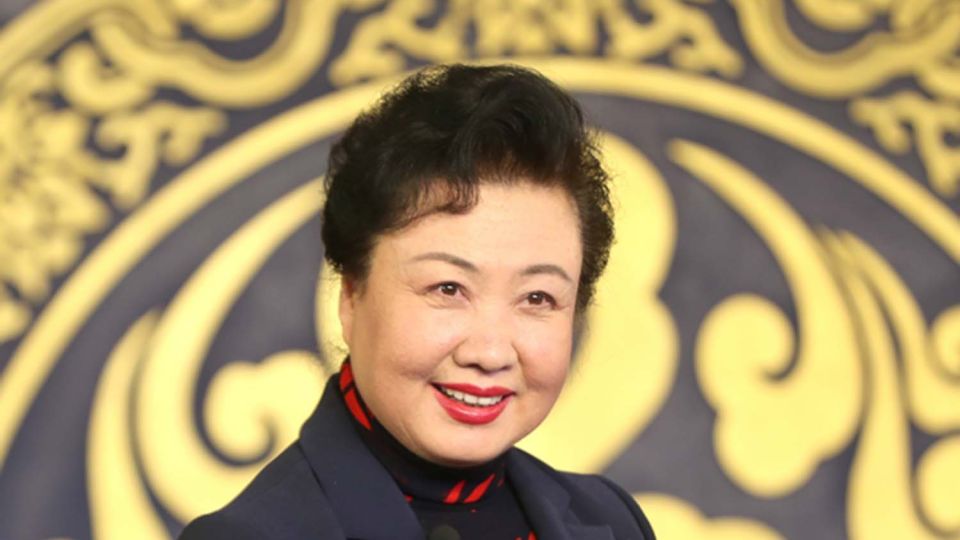March 11, 2022
BEIJING – Having been a Peking Opera artist for over 40 years, Wang Rongrong says she still loves the art form and continuously gains deeper understanding about its beauty.
On the International Women’s Day on March 8, the veteran artist appeared in Beijing’s Chang’an Grand Theater, an iconic venue for staging Peking Opera shows since the 1930s, to deliver a lecture reviewing her career and introducing the art form to younger audiences by performing excerpts of classic pieces to the music performed by a band from the Jingju Theater Company of Beijing.
With a combination of singing, dancing, acrobatics and martial arts, Peking Opera, or jingju, has a history stretching back more than 200 years. In 2010 UNESCO declared it an Intangible Cultural Heritage of Humanity. Like many traditional art forms, it has been challenged by contemporary entertainment and is losing its audience, especially the younger generation.

Wang Xiaoli, Liu Mingzhe and Zhao Shikang, who are all Wang Rongrong’s students, perform an exerpt of classic Peking Opera piece at the event. [Photo by Zou Hong/China Daily]
When women were forbidden to perform onstage back in the old times, men took on female roles, who were known as nan dan. Best known nan dan artists were Mei Lanfang, Shang Xiaoyun, Cheng Yanqiu and Xun Huisheng.
“The roles I play mostly are elegant females, which we call qing yi, a major role in Peking Opera performance. From the eyes to the hand gestures, all of the movements we make onstage have their own meanings, to portray the roles and express the roles’ emotions,” said Wang, while demonstrating some movements to display the roles’ different emotions, such as the excitement before meeting up with her lover and the anger before confronting her husband, who betrays her.
“It took years of hard work to master the skills, which makes the art form very difficult to learn,” Wang added.
The event kicked off a new project launched by Beijing Overseas Cultural Exchanges Center and Beijing Poly Forbidden City Theater Management Co Ltd, celebrating the old art form by inviting veteran artists to share their stories and views about Peking Opera throughout the year.


